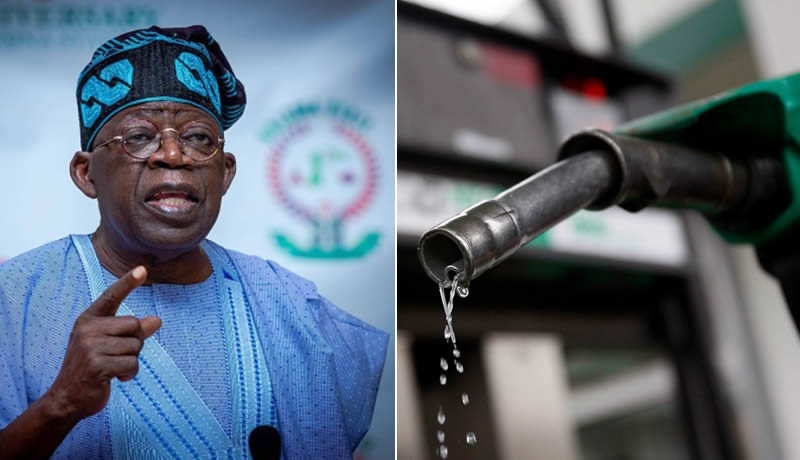As crude oil prices and currency rates continue to surge, President Bola Tinubu is taking into consideration a “temporary subsidy” on petrol.
According to presidency insiders who spoke to TheCable, there hasn’t been a final decision yet, but the suggestion is “firmly on the table” as Nigerians continue to suffer from hard economic realities after the withdrawal of the petrol subsidy in May 2023.
Labour unions have already pledged to go on an indefinite strike if petrol prices continue to rise.
According to a presidency official, the “realistic” amount of petrol consumed in the country is now known following the removal of subsidy on Tinubu’s inauguration, hence the amount spent on subsidy “can now be controlled”.
Read Also: Fuel Hike: Presidency Reacts To NLC’s Threat Of Nationwide Shutdown
On Monday, the Nigerian National Petroleum Company (NNPC) Limited said there are no plans to hike pump prices despite the rise in crude oil prices, landing cost, and fall in the value of the naira.
Though private importers haven’t formally announced any potential changes, it is thought that Tinubu has the option to maintain the present prices.
However, fears about a potential hike in the price of petrol at the pump (which is already above N600) have heightened tensions across the nation and prompted panic buying in the wee hours of Tuesday.
Nigerians have not experienced a break from price increases since Tinubu declared the elimination of the petrol subsidy.
The unchecked decline of the naira, the indigenous currency of Nigeria, in combination with difficulties with foreign exchange have caused prices of goods and services to continue to rise.
The Central Bank of Nigeria (CBN) intends to put fresh measures into effect on Monday to stabilise the naira versus the dollar.
Weeks after Tinubu took office as Nigeria’s elected president, his administration—already beset by questions about its legitimacy—quickly enacted a number of measures in an effort to jump-start the economy.
But it appears that these initiatives are not yet producing the anticipated benefits given the current economic circumstances.

